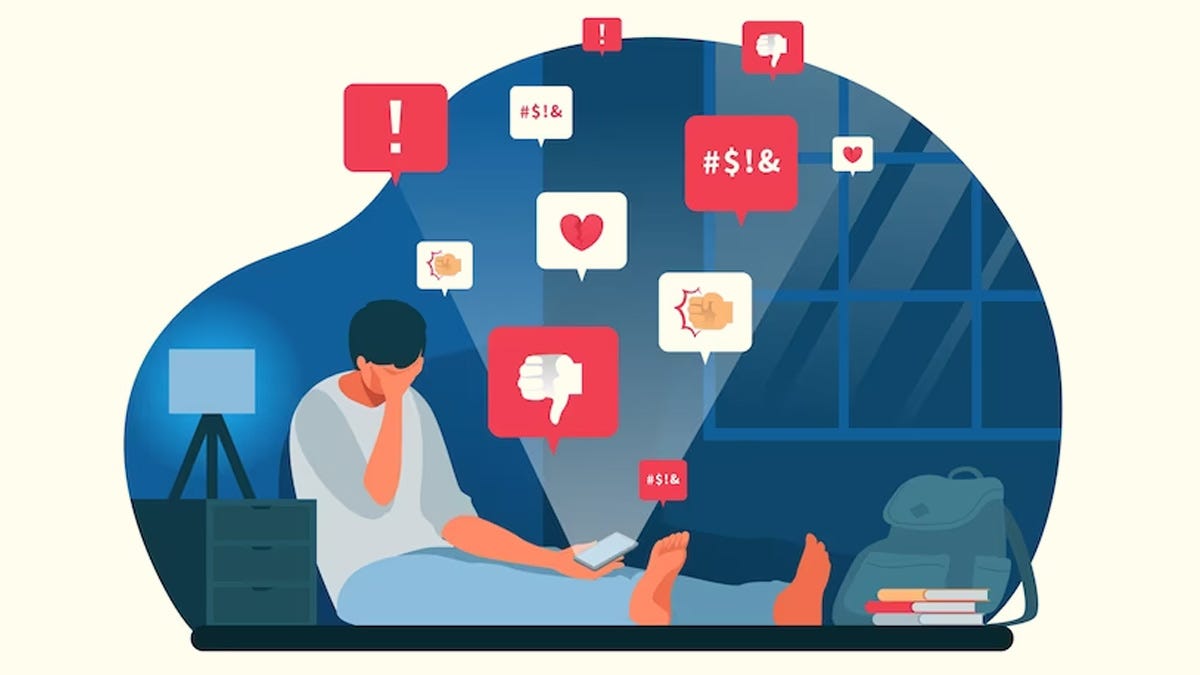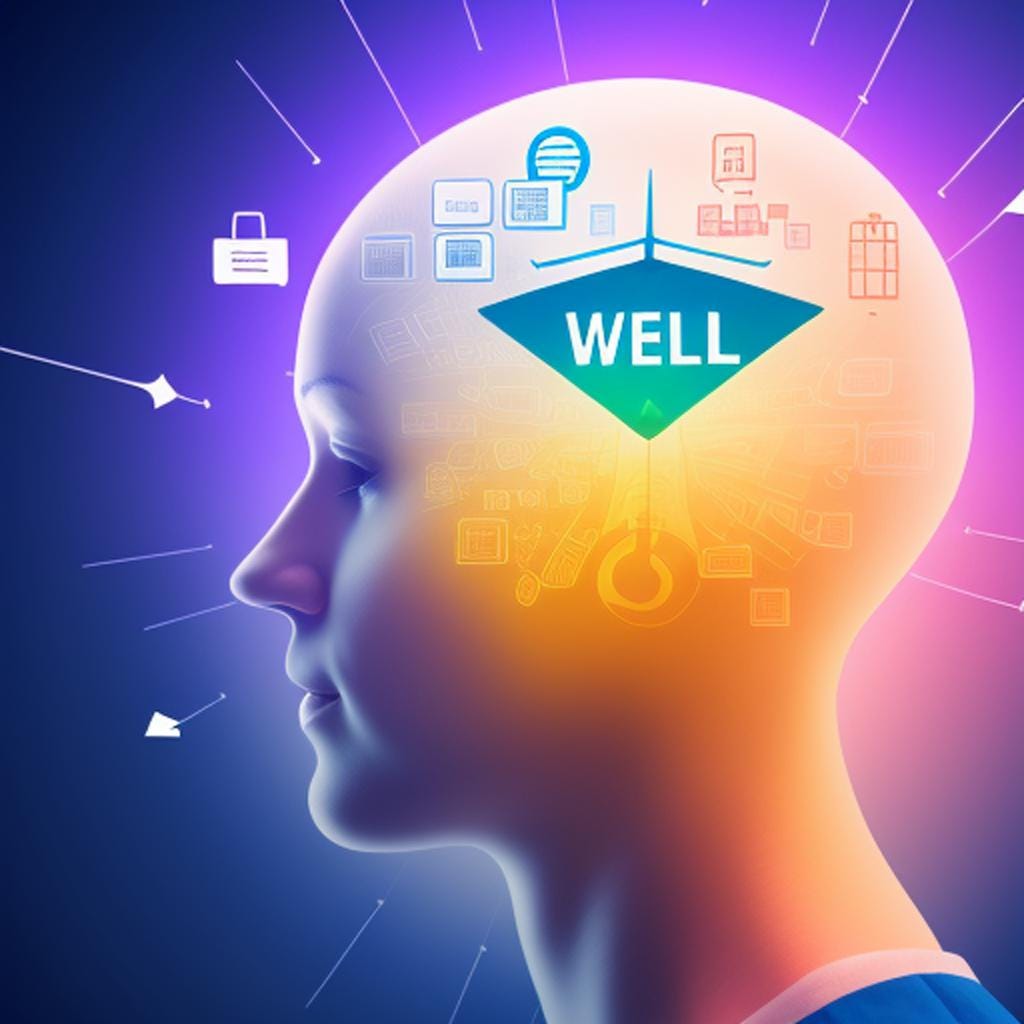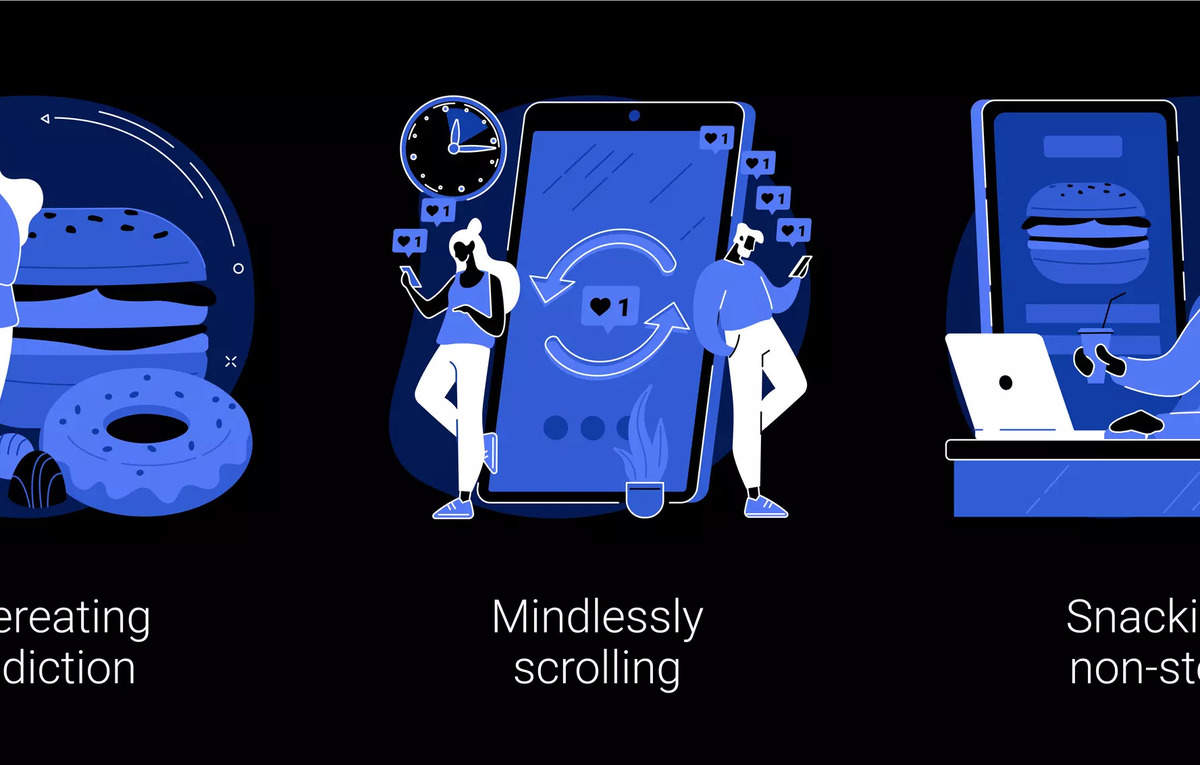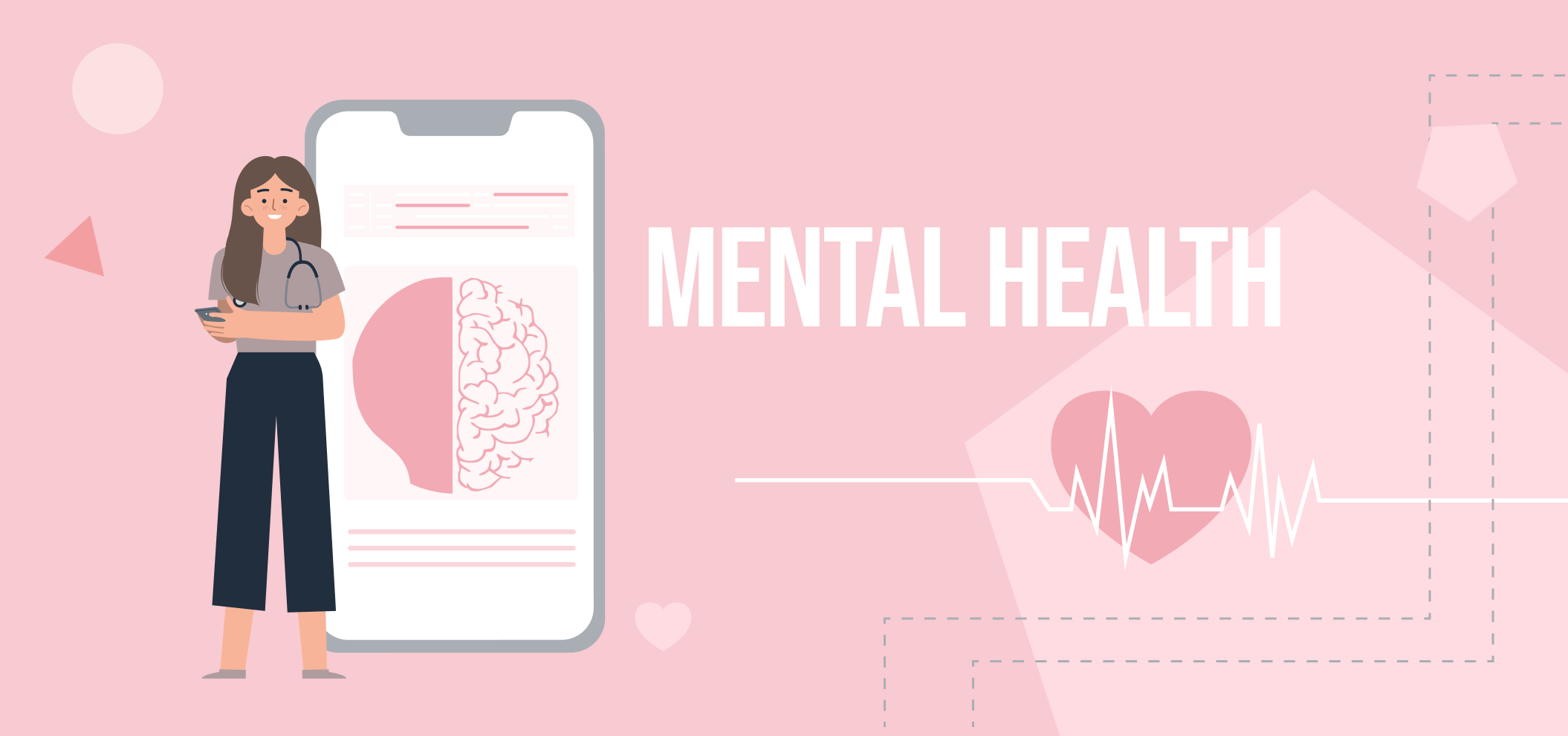The Impact of Digital Lifestyle on Mental Health: Understanding the Connection

Exploring the profound impact of digital lifestyle on mental health reveals a complex relationship between our online habits and mental well-being. As we navigate the digital landscape, it's crucial to understand how our constant use of technology influences our psychological state.
Delving deeper into the effects of social media consumption, stress levels, and feelings of isolation, we uncover a compelling narrative about the modern challenges we face in the digital age.
Table of Contents
ToggleThe impact of digital lifestyle on mental health

Living in a digital age has significantly influenced our mental well-being, often leading to both positive and negative effects.
Constant use of digital devices
The constant use of digital devices such as smartphones and computers has been linked to increased levels of stress, anxiety, and even depression. The never-ending cycle of notifications, emails, and social media updates can overwhelm the mind and disrupt our ability to relax and unwind.
Relationship between social media consumption and mental well-being
Social media consumption has been associated with negative impacts on mental health, including feelings of inadequacy, loneliness, and FOMO (fear of missing out). Comparing our lives to the curated highlight reels of others can lead to a distorted sense of reality and a decline in self-esteem.
Digital world and stress/anxiety levels
The digital world contributes to stress and anxiety levels through factors such as information overload, cyberbullying, and the pressure to constantly stay connected. These stressors can trigger mental health issues and exacerbate existing conditions.
Feelings of isolation and loneliness
A digital lifestyle can also lead to feelings of isolation and loneliness, despite being connected to a vast online network. Virtual interactions often lack the depth and intimacy of face-to-face communication, leaving individuals feeling disconnected and emotionally drained.
Comparison of different age groups

Digital lifestyle impacts mental health differently across various age groups. While teenagers are more susceptible to the negative effects of excessive screen time due to social media pressure and cyberbullying, adults may face challenges related to work-life balance and information overload.
Children, on the other hand, are at risk of developmental issues and reduced cognitive abilities from prolonged screen use, while the elderly population may experience isolation and lack of digital literacy.
Influence on teenagers' mental health compared to adults
Teenagers are heavily influenced by digital technology, with social media playing a significant role in their lives. The constant pressure to fit in, compare themselves to others, and seek validation online can lead to anxiety, depression, and low self-esteem. In contrast, adults may struggle with maintaining boundaries between work and personal life, leading to stress and burnout.
Effects of excessive screen time on children versus the elderly population
Children who spend excessive time on screens may experience delays in language development, attention issues, and poor social skills. In contrast, the elderly population may face challenges with digital literacy, leading to feelings of isolation and disconnection from the rapidly advancing technological world.
Specific challenges faced by each age group due to their digital habits
Teenagers
Cyberbullying, social media addiction, and comparison culture
Adults
Work-life balance, information overload, and digital dependency
Children
Developmental delays, attention issues, and lack of social skills
Elderly population
Isolation, lack of digital literacy, and difficulty adapting to new technologies
Strategies for maintaining a healthy balance
Maintaining a healthy balance between digital and offline activities is crucial for overall mental well-being. Here are some practical tips to help individuals achieve that balance:
Limit Screen Time
- Avoid using electronic devices at least an hour before bedtime to improve sleep quality.
- Set specific time limits for different activities on digital devices to prevent excessive use.
- Take regular breaks during screen time to reduce eye strain and mental fatigue.
- Engage in offline hobbies or activities that do not involve screens to diversify daily routines.
Digital Detox Periods
- Schedule regular digital detox periods, such as weekends or evenings, where electronic devices are put away.
- Use apps or tools that track and limit screen time to stay accountable and mindful of usage habits.
- Explore outdoor activities or mindfulness practices during digital detox periods to refresh the mind and body.
- Involve friends or family in digital detox challenges to create a supportive environment for unplugging.
Successful Strategies
- Setting realistic goals for reducing screen time and gradually implementing changes to avoid burnout.
- Creating a designated tech-free zone at home, such as the dining area or bedroom, to encourage offline interactions.
- Practicing mindfulness techniques, such as meditation or deep breathing exercises, to manage stress and anxiety related to digital overload.
- Seeking professional help or counseling if digital habits significantly impact mental health and well-being.
The role of technology in mental health support
Technology plays a crucial role in promoting mental health awareness and providing support to individuals in the digital age. With the rise of mental health apps, online resources, and therapy services, technology has revolutionized how mental health challenges are addressed and managed.
Benefits of mental health apps and online resources
- Mental health apps provide convenient access to tools and resources for managing stress, anxiety, and depression.
- Online resources offer information, guidance, and support for individuals seeking help for their mental health concerns.
- These platforms can reach a wider audience and reduce the stigma associated with seeking mental health support.
Effectiveness of online therapy and counseling services
- Online therapy and counseling services offer a convenient and accessible way for individuals to receive support from licensed professionals.
- Virtual sessions can be scheduled according to the individual's availability, making mental health care more flexible and tailored to their needs.
- Studies have shown that online therapy can be as effective as traditional in-person therapy in managing mental health challenges.
Examples of innovative technologies in mental health
- Virtual reality therapy has been used to treat phobias, PTSD, and anxiety disorders by creating immersive and interactive environments for exposure therapy.
- Artificial intelligence-powered chatbots provide instant support and guidance to individuals experiencing mental health crises or needing emotional support.
- Telemedicine platforms connect individuals with mental health professionals remotely, ensuring continuity of care and support regardless of location.
Closing Notes

In conclusion, the discussion on the impact of digital lifestyle on mental health highlights the importance of finding a balance between our online and offline activities. By implementing practical strategies and leveraging technology for mental health support, we can navigate the digital world more mindfully and protect our well-being.
FAQ Explained
How does excessive screen time affect mental health?
Excessive screen time can lead to various negative impacts on mental health, such as increased stress, anxiety, and feelings of isolation.
What are some practical tips for maintaining a healthy balance between digital and offline activities?
Some practical tips include setting time limits for screen use, engaging in physical activities, and creating tech-free zones in your home.
How can technology be used to support mental health?
Technology can be utilized to raise awareness about mental health, provide access to mental health resources, and offer online therapy and counseling services.
Related posts
Exploring Mental Health and Lifestyle Design for Young Adults
Enhancing Mental Wellness: The Power of Biophilic Design
Digital Security Insurance for Smart Home Owners: Safeguarding Your Connected Living Space
Featured Posts
- Sustainable Healthy Lifestyle for Urban Living: A Guide to Thriving in the City
- Lifestyle and Diet Tips to Manage Anxiety Naturally: A Comprehensive Guide
- The Impact of Lifestyle Choices on Prediabetes Reversal
- Low-impact workouts for a healthy lifestyle at any age: A Comprehensive Guide
- Lifestyle and Nutrition Guide for Hormonal Balance: A Comprehensive Approach
Tags
AT&T Digital Life (2) Balanced Diet (2) biophilic design (2) Cybersecurity (2) Diet tips (1) Disease Prevention (1) Exercise (4) Healthy eating (2) Healthy Habits (2) Healthy Lifestyle (3) Healthy Living (6) Home Automation (2) Home Decor (2) homeowners insurance (2) Insurance (3) insurance claims (2) Insurance Coverage (2) Interior Design (3) Lifestyle changes (2) Lifestyle Design (2) Lifestyle tips (1) mental health (3) mental wellness (2) Natural remedies (1) Productivity (2) Remote Work (1) Risk Management (2) self-care (2) Smart Home (2) Smart Home Technology (2) stress management (2) Sustainable Living (2) technology (2) well-being (3) Wellness (8)
Categories
- Architecture (1)
- Business (1)
- Cybersecurity (1)
- Digital Services (1)
- General (39)
- Health (6)
- Health & Fitness (1)
- Health & Wellness (2)
- Health and Fitness (1)
- Health and Wellness (6)
- Healthy Living (1)
- Home Design (1)
- Home Improvement (8)
- Home Security (1)
- Insurance (2)
- Mental Health (1)
- Nutrition (1)
- Sustainable Living (1)
- Technology (1)
- Wellness (1)
- Workspace (1)

